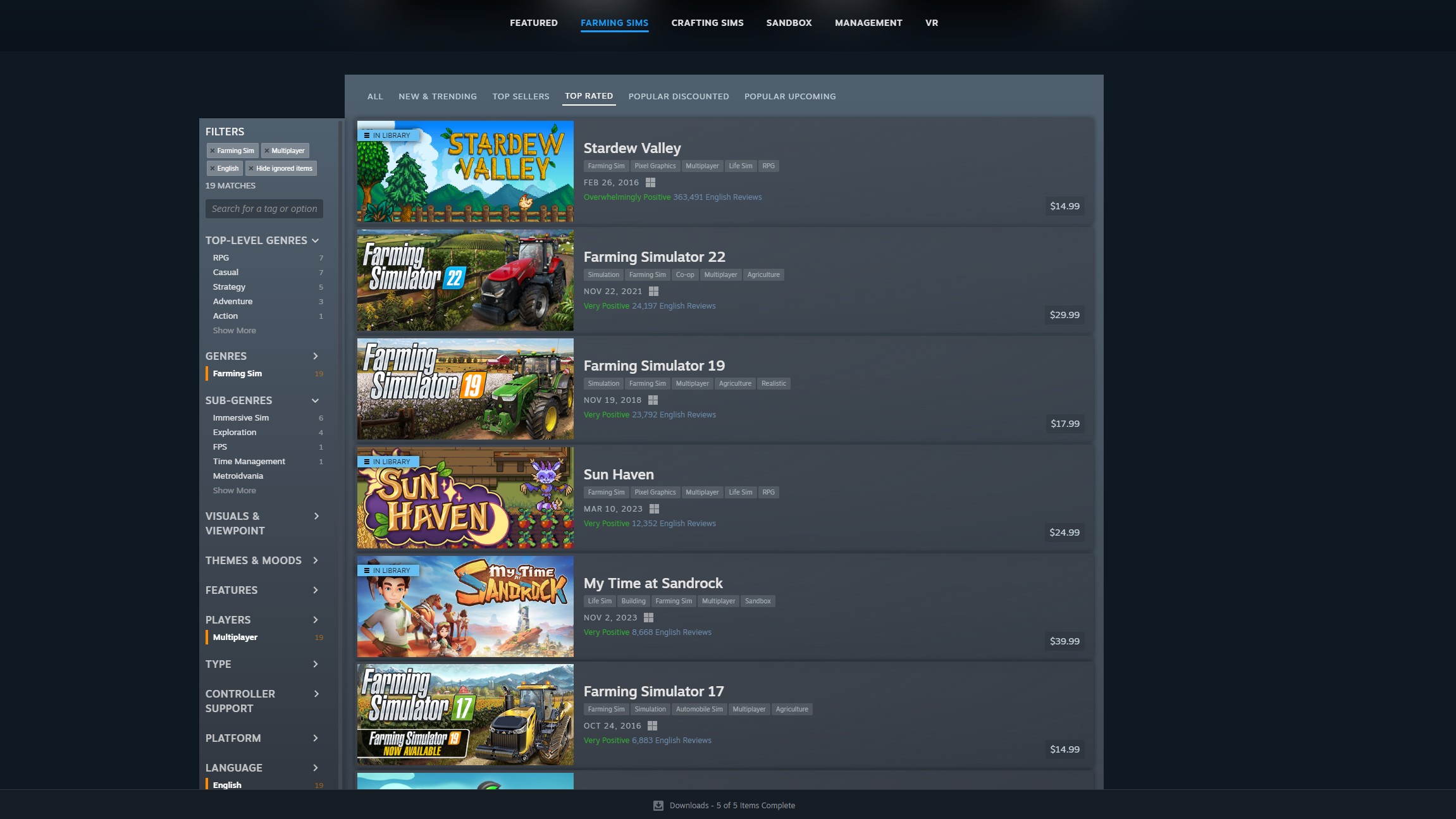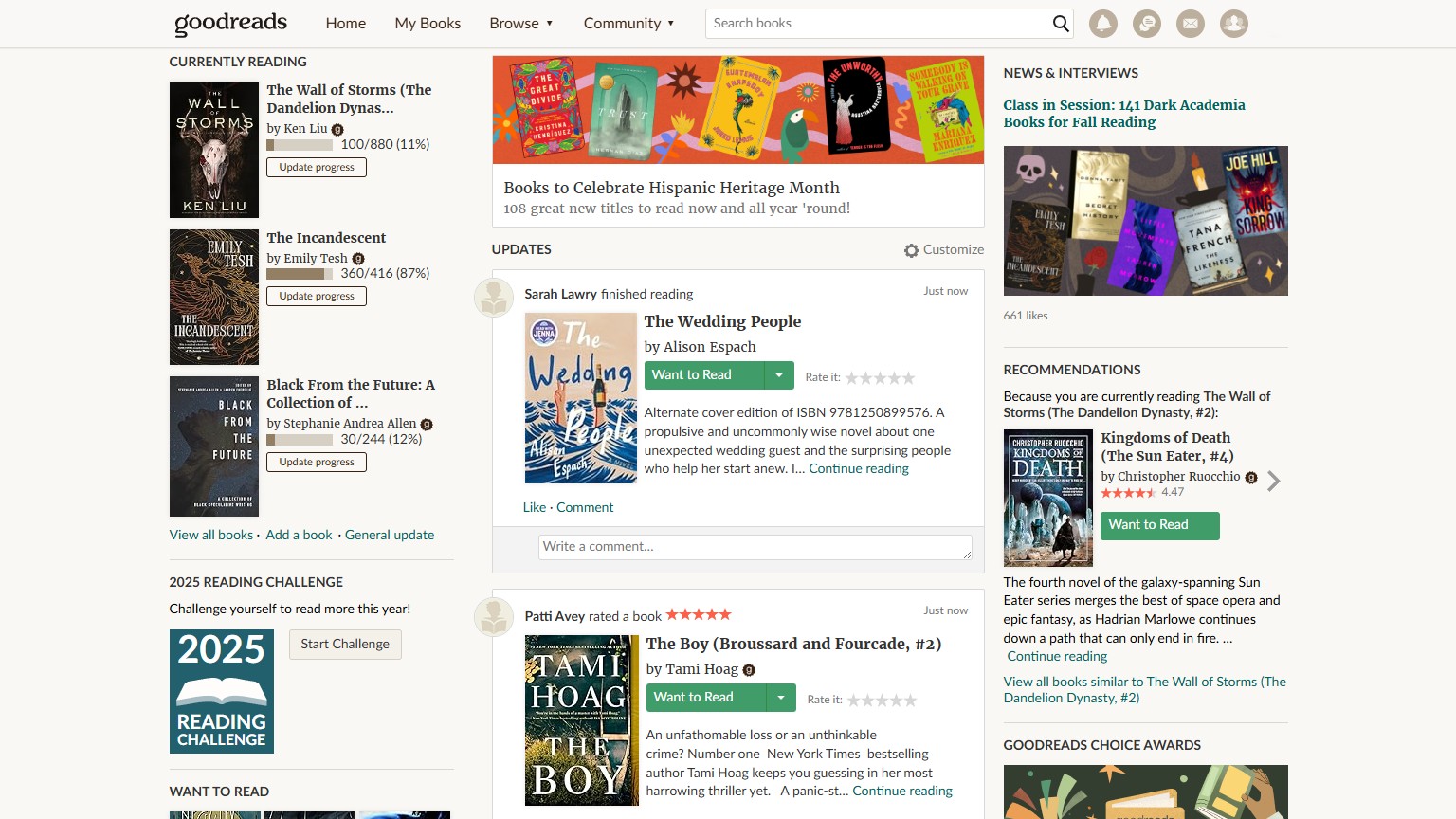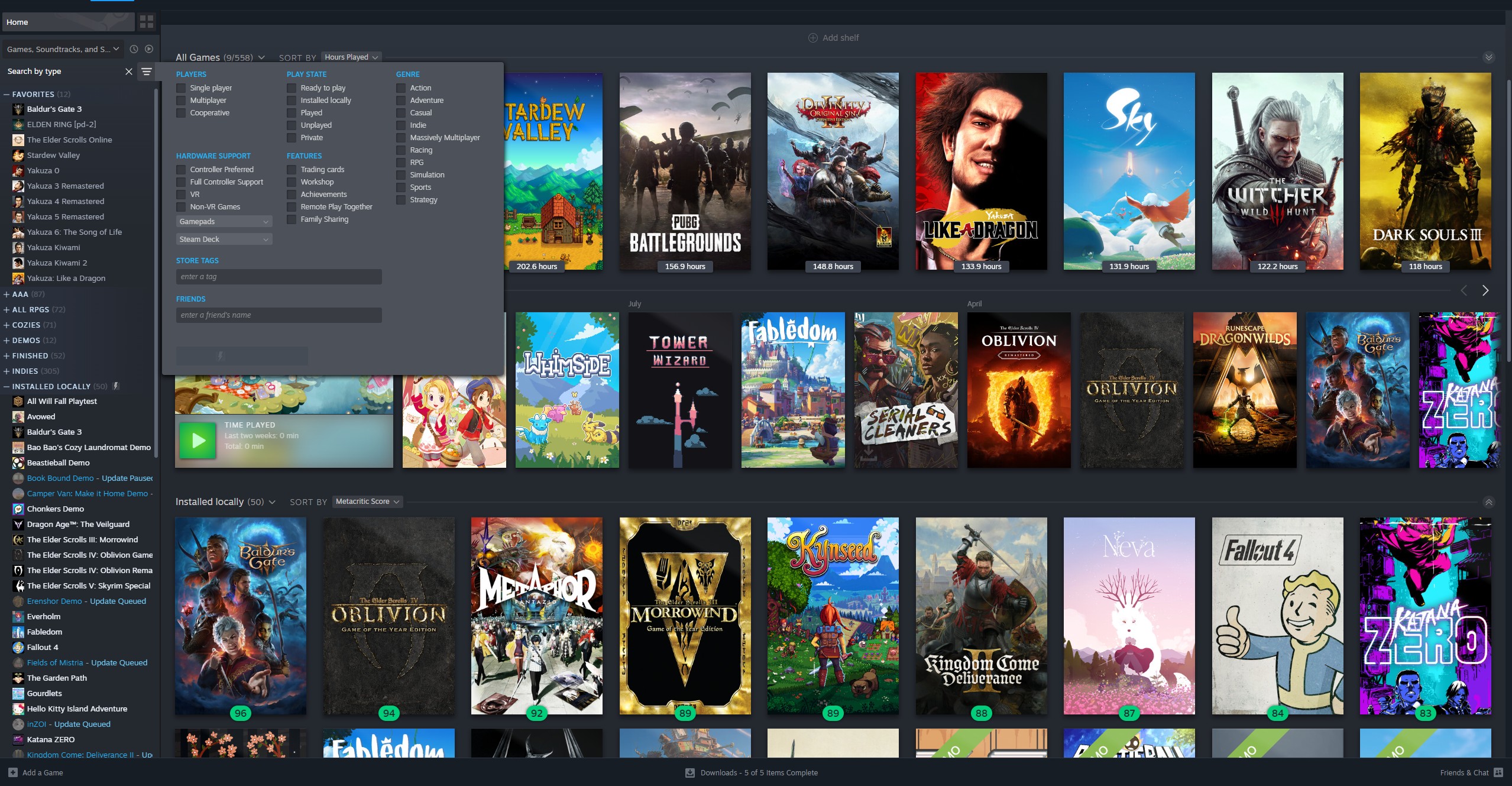The more book tracking apps I try, the more I think we as gamers don't realize just how good we've got it with Steam
Steam should be the blueprint for the reading apps boom.

My main two hobbies are gaming and reading. My third hobby is turning those other two hobbies into homework. That is not sarcasm; I love managing wishlists, surfing recommendations, and visualizing my stats with sortable spreadsheets and colorful pie charts.
With gaming it's easy. I dabble in spreadsheet logs occasionally, but I mainly lean on Steam to manage my gaming library and wishlist. Hobbyist reading apps, however, still leave a lot to be desired. Honestly, they could all learn a thing or twenty from Steam.
Reading for fun, especially fiction, has been in a boom for the past five or so years. For some people it was a pandemic hobby. Others got indoctrinated by Booktok (the book side of TikTok) and still others were gripped by the rise of the romantasy subgenre. The chemical reaction of that many new nerds in a niche caused an explosion of companion apps.
I've tried quite a few of them: the old faithful Goodreads that was basically the only option before all this fuss, stats-focused Storygraph, social media platform Fable, habit trackers Bookly and Bookmory, and others. The more upstart book apps I try, the more I think we as gamers don't realize just how good we've got it with Steam.
I occasionally give Steam a hard time for its crowded interface and feature bloat. And inevitably everyone complains when the interface slightly changes. But I have genuinely enjoyed a lot of the new features we've gotten in the past ten years.
The library redesign with dynamic collections totally changed how I browse my own digital shelf. The recommendations queue, though I don't often use it personally, is a genuinely good way to leverage heaps of data to put games in front of interested players. Heck, just using combinations of user-applied tags on games to deep search for my niches always works better than I'm expecting it to.
Best-selling fantasy author Brandon Sanderson said a while back that book publishing has a lot to learn from gaming and that's true here too.
Keep up to date with the most important stories and the best deals, as picked by the PC Gamer team.
Goodreads is the closest thing we have to 'Steam for readers.' It's a massive legacy database with a user-review focused platform owned by a huge digital distribution retailer (Amazon), with not enough competition in the space to incentivize it to improve its aging interface. It's even analogous to Steam in that the Kindle reading app, which Amazon also owns, is a launcher for all your digital products.
But Amazon doesn't make all those database entries and user reviews nearly as useful to readers as it could. I can click on a genre like "fantasy" but then that takes me to a big list of all new releases in that genre and lists that other random users have made of fantasy books. Why can't I filter by two tags at once, "fantasy" and "historical fiction" maybe? Why has it buried its book recommendation feature in a dropdown menu? Why does the main Goodreads dashboard center reading progress updates from other users as if this is primarily a social media platform?
If Goodreads took even a couple pages out of Steam's playbook it'd be a big improvement. It could display my own current reads front and center while also promoting big new releases in my favorite genres, books by my own highly-rated authors that I've not read yet, and its recommendations tool. It could give me the power to actually browse and search all those many user-applied tags just the way Steam does. Seriously, just rip off Steam's dynamic collections feature for my library and I'd be happy. Instead Amazon invested in Goodreads this year by…changing its logo and almost nothing else.
Unlike Steam, Goodreads has a lot of competing apps cropping up around it looking to attract all these new readers. StoryGraph has a good grasp on stats visualizing and a recommendation algorithm, but the interface is so bare that it doesn't feel like a destination and is only the place I go to track my daily page count. Fable is way too much social media for me—we all have plenty of that already—and the others are too focused on creating a reading habit that I personally already have and don't need help gamifying, thanks.
Steam has already stitched all these use cases together in a pretty ideal way. It's embraced the power of its database and given browsing power to players, and made a platform that feels like the real homepage for my gaming PC.
The hobbyist readers of the post-pandemic boom are a stats-loving bunch, voracious for recommendations, and ways to manage our own libraries. We deserve a sleek app that feels like a real destination, not just a utility. We deserve Steam, but for books.

Lauren has been writing for PC Gamer since she went hunting for the cryptid Dark Souls fashion police in 2017. She joined the PCG staff in 2021, now serving as self-appointed chief cozy games and farmlife sim enjoyer. Her career originally began in game development and she remains fascinated by how games tick in the modding and speedrunning scenes. She likes long fantasy books, longer RPGs, can't stop playing co-op survival crafting games, and has spent a number of hours she refuses to count building houses in The Sims games for over 20 years.
You must confirm your public display name before commenting
Please logout and then login again, you will then be prompted to enter your display name.




